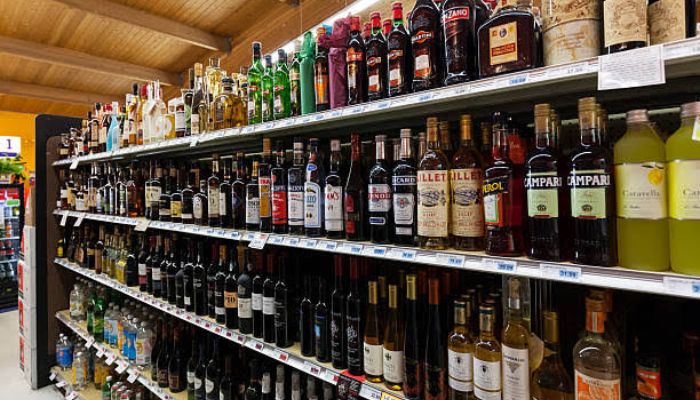Table of Contents
Are you planning your next adventure? As a travel enthusiast or an individual looking to take a vacation or a trip, you must be budget-conscious and usually need to reserve your flight tickets well in advance if you want to find a cheap ticket price, right?
If you are still wondering when is the best time to buy flights and get the cheapest price, in this article, we will reveal the secrets and tips to get the most budget-friendly and convenient travel arrangements. Without further do, let’s take a look at the explanation below!
Understanding When is the Best Time to Buy Flights and Why Flight Prices Fluctuate
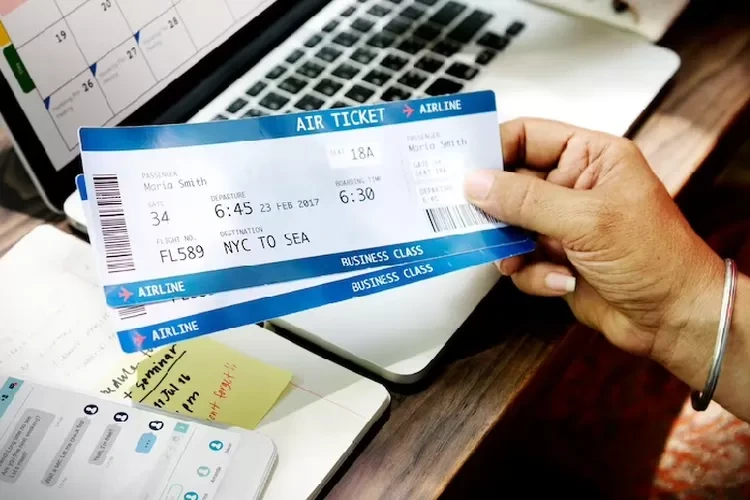
Source: Freepik
Buying flights can be frustrating as prices change quickly, which makes people wonder when is the best time to buy flights. Before that, let’s discuss why this happens. Here are some of the main factors that affect flight prices:
1. Dynamic Pricing Strategy
Airlines actually strategically create different price levels for each flight to incentivize early bookings. As the cheapest seats are booked, prices tend to rise gradually.
2. Day of the Week
Believe it or not, the day you choose to book your flight can affect the price. Studies suggest that Tuesdays and Wednesdays are often the best days to find deals, as airlines tend to release promotions mid-week.
3. Flexible Pricing Adjustments
Airlines also have the flexibility to control and adjust their prices regularly based on factors like demand and seat availability. This may involve selling or reallocating seats to higher price tiers to adapt to changing market conditions.
4. Global Online Ticket Transactions
The ability of millions of people around the world to instantly purchase (or cancel) airline tickets online through travel agents contributes to price fluctuations. Even small adjustments in seat availability resulting from online transactions can have a noticeable impact on ticket prices.
When is The Best Time to Buy Domestic Flight Tickets?
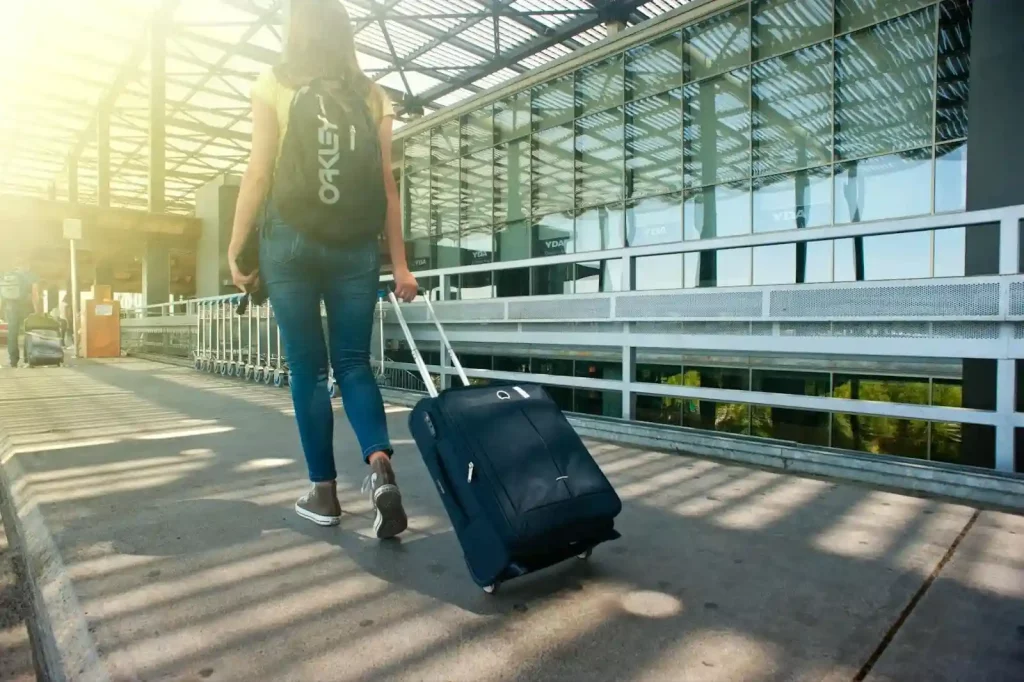
Source: Pexels
Here are some tips that you can use to get cheap ticket prices for domestic flights:
1. Choose a Weekday for Booking
The optimal days to purchase airfare are usually weekdays, ranging from Monday to Friday. During this timeframe, tickets are usually available at cheaper prices, with potential savings ranging from 3-6% compared to other days.
Google’s research discovered that, on average, flight prices on Tuesdays, Wednesdays, and Thursdays were 1.9% more affordable than those on Saturdays and Sundays. Despite this finding, Google concluded that there isn’t significant value in specifically choosing a particular day for ticket purchases.
Aside from the cost, weekdays also ensure that most flight services operate at peak capacity. This means that if any issues arise during the booking process, you can directly contact the relevant parties to address and resolve the issue immediately.
2. Booking Your Flight a Month Before
Expedia’s Air Travel Hacks 2024 report reveals that the ideal time to book domestic flights is 28 days before departure. According to Expedia travel expert Christie Hudson, booking tickets during this period can result in savings of up to 24% compared to those who wait until the last minute, zero to six days before the flight, as highlighted in Travel + Leisure.
For domestic travel, prices for tickets sold early tend to be higher when tickets are first released about a year before the flight.
According to CheapAir.com, these prices will slowly drop, reaching their lowest point during the peak booking period, which lasts about 5.5 to 1.5 months before the flight. After that, there is likely to be a significant increase in costs for last-minute travel.
3. Buying Flight Tickets in the Early Morning
Wondering when is the best time to buy flights for your next adventure? Timing can make a significant difference in your travel expenses. The best time to buy airline tickets is in the morning, around the early morning. During this time, fewer people buy tickets compared to other times of the day, making ticket prices more affordable.
Purchasing tickets in the morning also offers additional benefits, such as choosing a better seat and getting a flight schedule that suits you.
4. Utilize Available Promotions
Check the latest information about cheap flight ticket offers on various social media platforms. You will find many ticket discounts on sites and apps such as Traveloka, tiket.com, Pegipegi, and many more.
Using these promo discounts can cut your ticket price, so your travel budget can be more efficient.
Then you can also buy tickets during twin dates because there are usually many promos offered by travel agents. Apps and websites usually have attractive promos on these dates, such as discounts that make flight ticket prices much cheaper than normal days.
When is The Best Time to Buy International Flights?
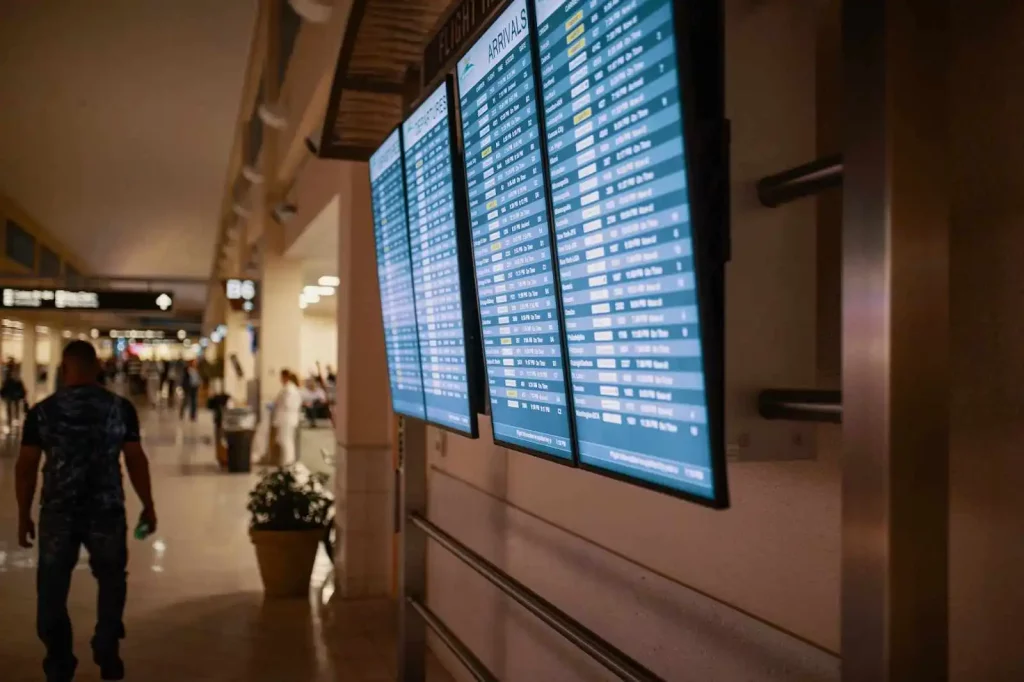
Source: Pexels
The question of when is the best time to buy flights always comes up in the minds of many people who often fly, especially if you want to go abroad. You have to prepare more carefully, considering the cost of tickets is not as cheap as domestic airline tickets.
So, here are some tips that you can apply if you want to buy plane tickets abroad:
1. Book Your Flights Early
When planning an international trip, it’s a good idea to book your flights early. Ideally, within four months of your preferred departure, with the best time being around 60 days in advance, according to Expedia.
This advice is a change from 2022, where the cheapest prices were found four to six months in advance.
In 2023, people who booked earlier actually paid more, as Hudson from Expedia points out. However, the ideal booking time can be varied by region.
2. Choose Off-Peak Season
Flying in the off-peak season is a smart move you can make if you’re still confused about when to buy airline tickets. This is because on peak travel dates, seat availability and airlines will set higher base prices for popular dates.
This includes well-known peak times such as school holidays and public holidays. It is also important to check the peak dates at your destination, as they may differ. For example, holidays like Chinese New Year may not be as significant in Europe but can significantly affect flights to Asia.
3. Choose Wednesday or Thursday to Fly Abroad
For international travelers seeking budget-friendly options, departing on Wednesdays is a smart choice, as it is the most economical day for international flights. However, it’s worth noting that the price difference across various days of the week isn’t substantial.
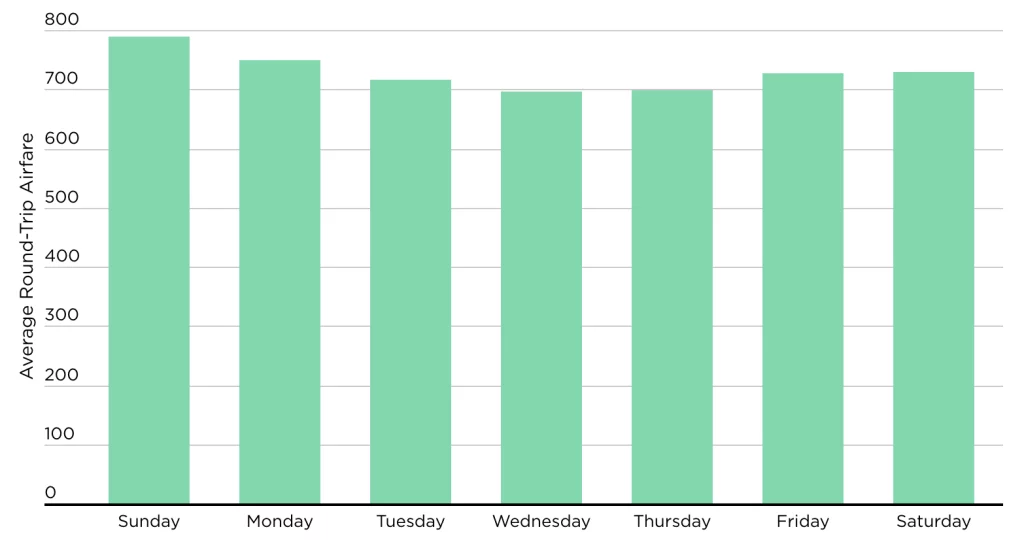
Source: NerdWallet
According to NerdWallet, choosing a Wednesday departure may result in approximately a 12% savings compared to the priciest day (Sunday), unlike the more significant 24% difference observed between the cheapest and most expensive days for domestic flights.
4. Choose Transit for a Cheaper Price
Another strategy to find more affordable flights is to consider the route of your flight.
One straightforward consideration is to include transit stops. Airlines often charge higher prices for direct flights. For example, a direct flight from London to Hong Kong with British Airways may be more expensive than a flight with KLM that includes a stopover in Amsterdam.
Although the stopover extends the travel time, it could reduce the overall cost. Many passengers actually prefer to break up the trip into several shorter flights.
Origin and destination points also play an important role in pricing. Again, this applies more to longer flights where there is greater flexibility.
Airlines price flights based on the route, and changing the point of origin or destination can have a significant impact on the cost. Choosing different airports in the same country, even if you connect through the same airport, can make a difference.
Conclusion: When is the Best Time to Buy Flights?
If you want to know when is the best time to buy flights for the cheaper price, you can book it in advance. For domestic travel, a window of between 164 and 46 days before departure is important, with Expedia suggesting significant savings potential at 28 days.
For international flights, you can maximize savings by departing on a Wednesday, and it’s certainly worth buying tickets 60 days in advance.
Both domestic and international flights, try to avoid holidays and weekends if you want to get cheap ticket prices. In addition, don’t forget to take advantage of promos that travel agents and other applications have provided.






